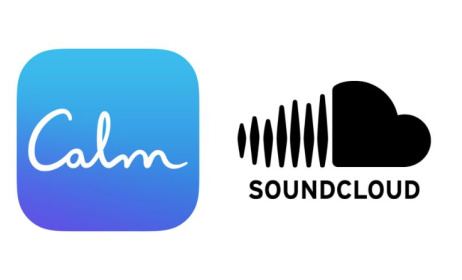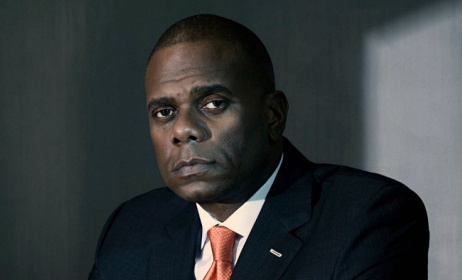Why status anxiety should make musicians anxious
There has been a lot of attention paid, lately, to mental health within the music industry. A University of Westminster study, which surveyed “2 000 music makers, from … Mercury Prize nominees to artists performing at local venues” found that “musicians are three times more likely to experience anxiety or depression than the general public” – with more than 70% of respondents reporting “high rates of anxiety.” Meanwhile, a 2019 study by Swedish company Record Union found that this number climbs to over 80% in the 18-25 age bracket.
 A version of Edvard Munch’s The Scream, illustrating the anxiety of the human condition. Munch (1863-1944) himself was often associated with bohemianism and mixed with bohemian writers and artists who drew inspiration from “spiritual concerns”.
A version of Edvard Munch’s The Scream, illustrating the anxiety of the human condition. Munch (1863-1944) himself was often associated with bohemianism and mixed with bohemian writers and artists who drew inspiration from “spiritual concerns”.
The reasons for this are varied, including alienation arising from financial precarity, antisocial working hours and an “always-on mentality”, but the University of Westminster researchers found that the “key themes that affected well-being of musicians were status of work, status of value and status of relationships.”
This article discusses the current mental health crisis in the music industry through the lens of philosopher Alain de Botton’s concept of status anxiety.
What is status anxiety?
At the heart of De Botton’s thesis is the following insight: “Every adult life could be said to be defined by two great love stories. The first – the story of our quest for sexual love – is well known and well charted, its vagaries form the staple of music and literature … The second – the story of our quest for love from the world – is a more secret and shameful tale.”
According to De Botton, the “quest for love from the world” is best understood as a desire for status. He defines status as “one’s value and importance in the eyes of the world” and points out that, “Increasingly, since 1776, status in the West … has been awarded in relation to financial achievement”, but the consequences of high status are more far-reaching than simply material comfort, fulfilling the deep human need “of being cared for and thought valuable.”
Status anxiety is a kind of pervading, persistent fear that we will not achieve the status we desire – and, perhaps, feel that we deserve. It is the dreadful suspicion that we are missing out on being loved by the world: a “pernicious” worry that we are “failing to conform to the ideals of success laid down by our society and that we may as a result be stripped of dignity and respect; a worry that we are currently occupying too modest a rung or about to fall to a lower one.”
Poets, musicians, albatrosses
The causes of status anxiety can be varied and contradictory – encompassing both bad news (“I’ve failed again!”) and good news (“Don’t I deserve more?”) – and it is important to remember that it is an emotion almost always suffered in silence. “Like confessing to envy (to which the emotion is related) … evidence of the inner drama is uncommon, limited usually to preoccupied gaze, a brittle smile or an overextended pause after news of another's achievement,” De Botton explains.
The effects on mental health caused by status anxiety can, therefore, be thought of as a kind of secret and caustic resentment: “a corroding awareness that we have been unable to convince the world of our value and are henceforth condemned to consider the successful with bitterness and ourselves with shame.”
De Botton devotes four sections at the end of his book Status Anxiety to discuss some solutions to the malaise. His section on bohemia, I believe, provides insight into why musicians are at such high risk of experiencing the “corroding” shame of status anxiety – and, therefore, the ensuing mental health complications, such as depression.
In De Botton’s view, bohemianism originally described a social class of individuals “who had sacrificed the security of a regular job and the esteem of their society in order to write or paint or make music.” Rejecting the “bourgeois” (largely material) values of their age, bohemians, instead, devoted themselves to “spiritual concerns” such as making art, freedom of thought and self-expression.
However, there is a tragic paradox at the heart of the bohemian project. As De Botton explains, the sacrifices required to live this kind of creative life can often militate against the very capacity to create. “So keen have many bohemians been to place spiritual concerns at the forefront of their lives that their neglect of practical matters has led them into an all-consuming struggle to find enough on which to survive, with less time to think about the spirit and more need to think about the body,” he writes.
Citing Charles Baudelaire’s poem ‘The Albatross’, De Botton puts forward an argument that the archetypal bohemian poet, like the current-day musician, exists in a world that is detrimental to their values and hostile to their aspirations of status. Their profession is a calling (“I must make art”), yet their profession becomes more precarious – and status-sapping – with every passing day.
They are, therefore, almost destined to be hobbled by the effects of status anxiety: “It is because of his great wings that the poet cannot walk.”
Status anxiety today
It is worth highlighting, at this point, that Status Anxiety was first published in 2004 – before the age of smartphones and social media – giving De Botton’s work a prophetic quality. And the situation could be direr today than when De Botton made his diagnosis nearly two decades ago.
As discussed, status is relational: a concept that only makes sense in terms of comparison with another; it is not a unique insight to point out that in today’s world of ubiquitous social media – where our smartphones are like extensions of our sense faculties and where our attention is commanded by purposefully addictive algorithms – there is a quasi-neurological imperative to compare yourself with everyone, all the time.
This is the central thesis of Katherine Ormerod’s book Why Social Media Is Ruining Your Life (2017), in which she explains that our lives “have changed entirely due to social media, with far-reaching implications on how we build relationships value ourselves and map out our life expectations”. Or, as a The New York Times writer acerbically puts it: “It is almost as if the internet now exists simply to hate-read all of the ways everyone else in the world has been #blessed.”
With all of this in mind, my concern is that the way the music industry has evolved since the advent of streaming and social media has amplified the effects of status anxiety to dangerous levels, occasioning the current mental health crisis within the music industry.
This is because, for musicians operating in today’s environment, the difference between status and livelihood – which, remember, was always thin – has now practically disappeared. To have any sort of career depends on status (the number of followers you have; your stream/view count), and this can only breed the most mordant kind of status anxiety.
Look at the case of TikTok. Artists may be earning money off the platform but it is also true that record companies are increasingly using raw data from TikTok to identify and sign “the next artist” capable of producing “multiple viral hits.” This dynamic has bred an environment of comparison and competition so fierce that even major industry stars are expressing frustration about their record companies “forcing them to go viral on TikTok.”
And, if the ultimate point of blowing up on TikTok is to get more traffic for your music on streaming platforms – from which you can’t earn a living wage – is that a worthwhile tradeoff?
Why the effort? What’s the point?
The answer, of course, is that the only way to alleviate status anxiety is to seek to recapture a sense of status. As Adam Smith writes in his book The Theory of Moral Sentiments, “To what purpose is all the toil and bustle of this world? … To be observed, to be attended to, to be taken notice of…”
When these efforts fail, however – when our quest to find the love we need from the world is thwarted, once again – the pain of status anxiety is redoubled. It is this vicious circle that, I believe, lies at the heart of the music industry’s current mental health crisis.


































Comments
Log in or register to post comments